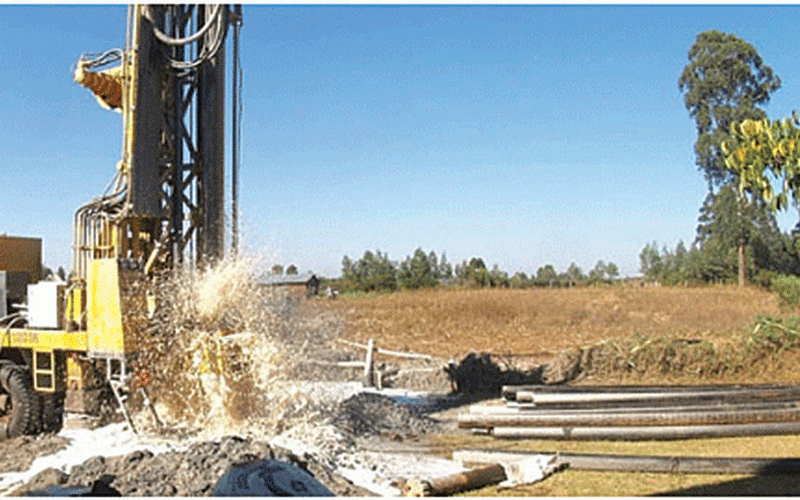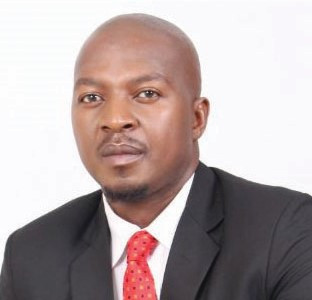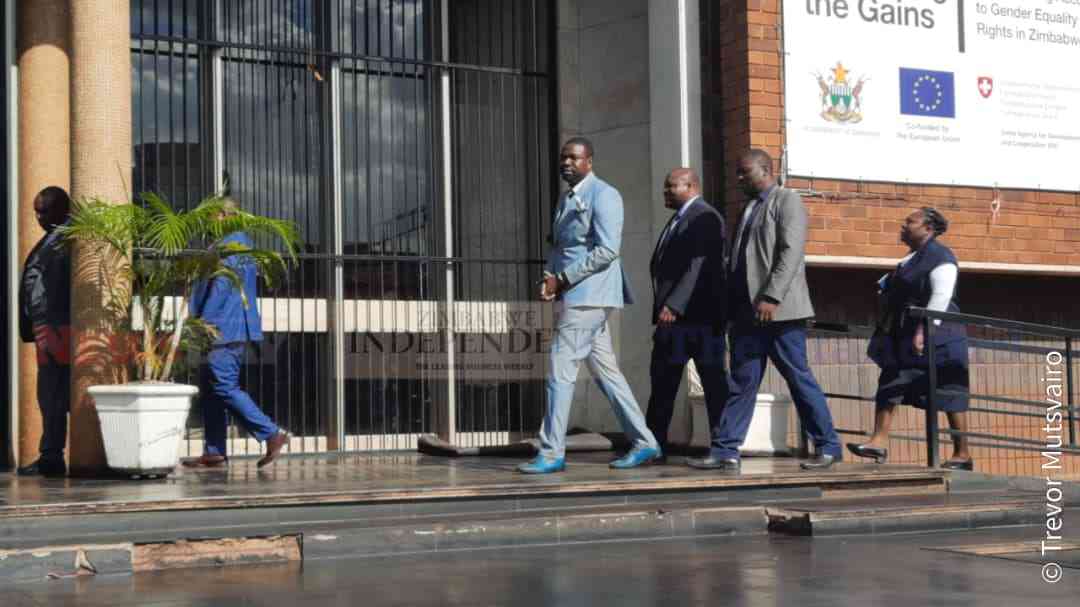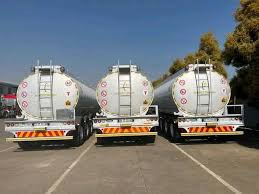
IN a rural village in ward 5 in Bikita district, Masvingo province, a stark reality has become a daily struggle for women and children, as they share a water source with domestic animals, including dogs.
The sole community water source, spring seepage, has become a hub of activity, where humans and animals converge to quench their thirst.
Located at the centre of Gwekwe village, the seepage serves residents of six other villages, namely Majecha, Muziri, Zvemisha, Machaya Mangoro and Muziri, as most wells have dried up owing to below-average rainfall received this year.
But a centuries-old cultural belief is pitted against the urgent need for clean water, as the community fears to protect its sole water source.
The spring seepage has been the lifeblood of the village for generations, but efforts to safeguard it from contamination and depletion are being hindered by a deeply held cultural conviction that protecting the water source will cause it to dry up.
Before dawn on a daily basis, women brave the early morning chill and go out to fetch water from the spring.
They race against time to collect the precious liquid before the arrival of thirsty animals, which often contaminate the water when they drink at the spring.
But as the demand for water grows and the supply dwindles, the question looms: How long can this fragile routine sustain the villagers’ needs?
- Villagers fight climate change through smart agric
- Minister dragged to court over chieftainship
- Another teenager dies giving birth at shrine
- Another teenager dies giving birth at shrine
Keep Reading
“I have to wake up early so that I get clean water for drinking and other domestic uses before animals contaminate it,” a villager Angelica Chimuka told NewsDay.
“I used to fetch water from a well at home during the rainy season, but it has since dried up. The well is not deep enough to sustain us throughout the winter season until we receive the next rains. The situation has been exacerbated by this year’s drought, so the well did not have enough water to last longer.”
Another woman, Everjoice Mamutse, said the spring was a distance from her home, hence she could not carry enough water to cater for her family’s daily needs.
“I carry water on my head for daily household chores and it is hectic,” she said.
“I can’t afford to pay those who have scotchcarts to bring me water home. As a result, I use water sparingly, which may result in me failing to meet the necessary hygiene standards at home.”
Community health workers fear that lack of protection of the spring may result in the water source becoming a breeding ground for waterborne diseases, posing a significant threat to public health in the community.
Ward 5 community health worker Jesina Masvovere said there was an urgent need to avail a safer drinking water source for the community.
“Safe drinking water is a serious challenge to this community,” Masvovere said.
“We are thankful that we have perennial water from the spring, but it is not really safe for drinking. Also, the water source is not easily accessible to everyone.
“Some stay far from the source. Women are using the water for several purposes such as gardening and washing, but for drinking, it is not recommended. “It is unfortunate that the spring water source cannot be protected or treated. It is against our culture.”
The cultural dilemma has forced women to take matters into their own hands, as they navigate the challenges of collecting and purifying water while also competing with animals for this precious resource.
Village head Kenneth Gwekwe insisted that the spring could not be protected as it is against cultural beliefs.
“The well cannot be protected,” he said.
“It will dry up. By protecting, I mean you can’t put a fence or something of this modern world to protect it. But for generations, it has been like that.
“It is a perennial water source. No matter how severe the drought may be, the (spring) well does not dry up. It has been like that for ages, where humans and animals live in harmony, drinking from the same water source. In the village across, they had a similar well and it dried up after they fenced it off.”
Government launched the Presidential Borehole Drilling Scheme in 2022, pledging to address water challenges in various communities throughout the country.
Under the scheme, the Zimbabwe National Water Authority is expected to drill solar-powered boreholes for each of the country’s 35 000 villages by 2025.
But for the past two years, the Bikita ward 5 community has been waiting with bated breath for the presidential borehole drilling scheme, touted as a solution to their long-standing water woes.
But as the days turn into weeks, and weeks into months, the villagers are still forced to rely on open sources of water exposed to contamination from animal and human waste for their daily needs.
As the wait continues, frustration and desperation are mounting, and the people of Bikita West constituency are left wondering when the promised relief will finally arrive, and if it will come soon enough to avert a full-blown water crisis.
Bikita West legislator Daniel Makusha said under the Presidential Borehole Drilling Scheme, there were about 600 boreholes expected to be drilled in his constituency.
He said there were only seven boreholes that had been drilled since the project started, but they were not yet functional.
“We have the rig. The President [Emmerson Mnangagwa] provided us with one,” Makusha said.
“We drilled seven boreholes, but they are not yet functional. We do not have the bush pumps or the solar panels to power them.
“The other challenge we are facing is that, though we have the rig, we do not have fuel most of the time and we do not have the casings. If we had the resources, by now, we would have drilled over 400 boreholes.”
Makusha said the community was struggling to repair broken down boreholes.
“There are over 40 broken down boreholes in communities,” said Makusha.
“If those are repaired, they could ease water challenges. However, it can take us up to six months to repair the boreholes, but because they are obsolete, by the time we finish, the repaired ones would have broken down again, so we just need new ones.”
- This story was produced with support from the WAN-IFRA Women in News Social Impact Reporting initiative.










